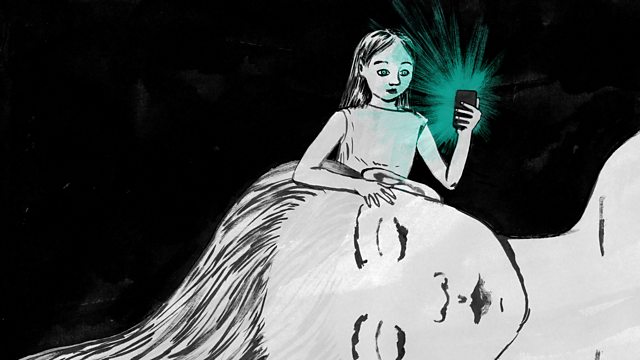Subconscious
How much of our interaction with technology occurs out of our awareness, even when we have the illusion of control? Aleks Krotoski investigates.
Geoff Lean was in a coma for a month, during this time he could hear and feel everything but it wasn't until he woke up from the coma that he realised he had also unconsciously absorbed visual information through his eyes.
Aleks investigates Blindsight, one of the most curious phenomenon's in cognitive neuroscience and helps to explain how Geoff was able to see without seeing. Milena Cunning went into hospital a sighted person but when she awoke from a coma her world was completely black. A stroke had destroyed the part of the brain that allowed her to see, she later discovered that she had Blindsight. A condition which results in a loss of visual experience yet allows information unconsciously to reach the brain. It suggests there is a great deal that we are doing independently of consciousness awareness. We are able to automatically perform without conscious sight or thought. This is highlighted when we become familiar with a piece of technology it becomes automatic, we need little conscious input to use it.
Aleks discovers we are able to steer our way through the world on auto pilot especially if we are performing a habit, an automatic behaviour stored in our unconscious. We all experience a form of Blindsight, like driving and having a conversation , our attention is on the conversation, so we are not conscious of actually driving. Our automatic use of the technology, the car, is stored in our unconscious mind.
Professor Nillie Lavie from UCL says that what Blindsight shows us about our ability to unconsciously see coupled with how we are presented with information online influences not only how much we are subliminally influenced in a digital world but the type of information we unconsciously pick up on and absorb.
Produced by Kate Bissell.
Last on
More episodes
Previous
Next
Clip
-
![]()
Sleep driving - the power of the subconscious mind
Duration: 00:36
Dr Jody Culham

Milena Canning

Milena Canning lost her sight after a stroke when she was 29. She had a two year old daughter at the time and had no choice but to carry on with life the best she could. After tests she found out that that had Blindsight. Her eyes could see perfectly but the part of her brain that allowed her to see was damaged by the stoke. While she cannot see, visual information is still filtering into her brain unconsciously and while she is not aware of it she is able to use this information to navigate the world around her. Blindsight is the condition that gives us the insight that we do a great of visual processing quite independent of conscious experience.
Professor Nilli Lavie

Geoff Lean

Professor Mike Howell

Professor Richard Wiseman

Broadcasts
- Mon 24 Apr 2017 16:30������̳ Radio 4
- Thu 10 Aug 2017 23:30������̳ Radio 4
Podcast
-
![]()
The Digital Human
Aleks Krotoski explores the digital world



